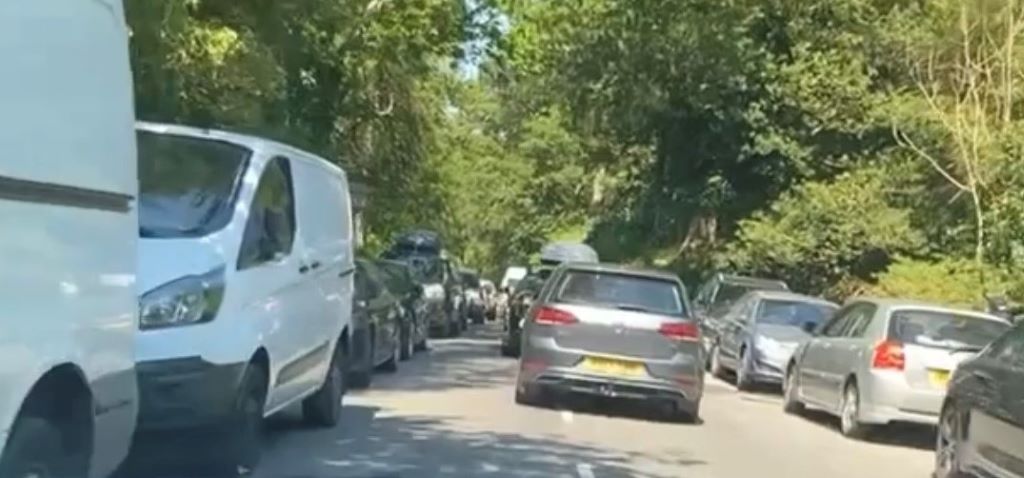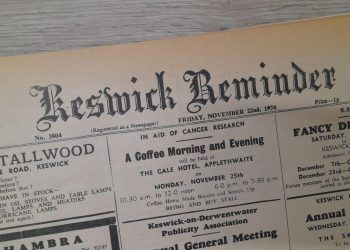
Desperate residents in Borrowdale have roasted the authorities for failing to punish problem parkers after the valley was “inundated” with cars this summer.
Thirty members of the public were given the chance to let-off steam on at an open meeting in The Institute and told of verbal abuse from motorists, free-for-all parking, ridiculously long traffic queues, stranded bus services and farmers blocked out of fields.
Resident Katie Hughes, compared the B5289 to the M6 motorway, and said: “I have been spat at, sworn at and I have had people urinating outside my house. I don’t know what the answer is but something has to be done.”
When challenged, some problem parkers responded with retaliatory tactics such as tipping rubbish on doorsteps, urinating against their homes “or worse”, the meeting heard.
There were claims that since the pandemic, the demographic of visitors to the area had changed with some younger visitors treating the area like a festival site – leaving rubbish behind and abandoning camping kit.
There were accounts of residents struggling to get to and from work, children to school and appointments, because of traffic, and bus services stranded in Keswick because they could not get down the valley.
Among the criticisms was that organisations such as Cumbria Tourism are luring “more and more” visitors to the area with little regard for the rural infrastructure.
Yet when pop-up or permanent car park proposals came forward, planners at the Lake District National Park Authority knocked them back because of ambitions to cut car dependency in the World Heritage Site.
Resident Joseph Linston, of Grange, said: “The national park are encouraging people to come, which is fine, but they seem to be against cars and car parks.”
Intervention by either Cumbria police or enforcement highways authority Cumbria County Council was very limited and inconsistent.
A police spokeswoman told the meeting: “Like every other public agency our budget has been cut phenomenally and the police who cover Borrowdale are based at Workington.”
She said officers must prioritise which incidents they attended and could only enforce obstructions rather than parking on double yellow lines. County council traffic warden teams also had to cover the whole of Allerdale and did not have enough resources.
Craig Philips, watch manager at Keswick Fire Station, said crews had always managed to get through but had been delayed.
The National Trust came in for criticism for not policing its car parks, which are increasingly being occupied by large camper vans parking up and staying overnight – against the rules.
Lee Simpson, of Keswick Adventures, said his company had NT memberships to park but often there was no room to squeeze in a canoe trailer to take guided groups out on Derwentwater. He called for designated spaces for local adventure providers.
A resident warned that with the amount of bonfires now, “one day the National Trust’s Great Wood is going to go up in flames”.
Yet the meeting heard that a NT warden was threatened with “physical violence” when attempting to put out a fire. Residents laughed off £30 fixed-penalty notices and said fines needed to be raised.
Residents would like a dedicated traffic warden and for double yellow lines to be massively extended. Pathways and pavements are being occupied by cars – forcing walkers and young families with pushchairs into the road – while laybys have become dangerously over-crowded.
The meeting was hosted by councillors Tony Lywood and Markus Campbell-Savours who plan to contact the authorities, make them aware of the complaints and pursue practical solutions.








